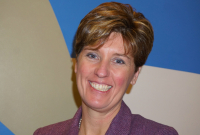Support strong Canadian climate journalism for 2025
The federal government is pledging up to $20 million to fund sexual health and abortion−related projects as part of an international campaign to fill a gap created by President Donald Trump’s decision to ban U.S. funding for abortion−related projects.
The money will go to five organizations, including the International Planned Parenthood Federation, and be spent in the coming 12 months. In a release, the government says the money will go towards contraceptives, family planning and comprehensive sexuality education, and access to post−abortion care.
International Development Minister Marie−Claude Bibeau said in a statement that all women have the right to choose whether and when they want to have children, and how many.
A major aid agency said it would welcome any financial help Canada can provide, but warned that if the country is really serious about helping poor women in the developing world, it must increase the overall amount it spends on international aid in the upcoming federal budget.
Lauren Ravon, Oxfam’s Canadian director of policy and campaigns, says Canada’s decision to take part in Thursday’s pledging conference in Brussels — known as "She Decides" — is a welcome effort.
Bibeau represented Canada at the meeting, where some 50 countries are trying to raise $600 million to fill the shortfall caused by Trump’s decision.
One of Trump’s first acts as president was to bring back a policy withholding hundreds of millions of dollars per year from groups that perform abortions or provide advice about the procedure.
The ban has been instituted by successive Republican administrations dating back to the Ronald Reagan era in 1984, only to be rolled back by successive Democratic presidents since then. Trump’s order reversed Barack Obama’s 2009 decision to restore funding.
The Trudeau government made a similar decision after winning power in 2015 by allowing funding for family planning in projects related to the maternal newborn child health, the signature aid project of the previous Harper government.
The Conservatives also banned funding to abortion−related services, but the Trudeau government lifted that ban while deciding to carry forward with the aid initiative.
The Liberals have not committed to raising Canada’s overall aid budget, which stands at less than 0.3 per cent of gross national income. That’s significantly less than the 0.7 per cent target that the United Nations has set.
Bibeau and Prime Minister Justin Trudeau have said it is unlikely Canada can come up with a plan to meet that target because it would involve a massive infusion of new funds into the aid budget, as much as $10 billion.
Ravon said organizations such as Oxfam want to see an overall increase in Canada’s aid budget.
"Whatever announcement Minister Bibeau makes is great; there is such a shortfall in funding," she said in an interview. "(But) we’re seeing that Canada’s aid budget is actually at an almost all−time low. One−off announcements are important. But we’d really like to see a major increase in the federal budget for development assistance."
The Liberals are expected to release their latest budget in the coming weeks. Bibeau has overseen the completion of a major review of Canada’s development strategy, but has not released it.
Supporting women and girls "will be at the heart" of the new aid strategy, says a summary on her department’s website. The government says it held 300 consultations in 65 countries, involving 15,000 people.
Two of the main messages it received was to "apply a feminist lens" to development and raise overall aid spending to 0.7 per cent of gross national income.
Shaughn McArthur, CARE Canada’s advocacy and government relations adviser, said agencies such as his are applauding the government’s focus on women and girls in the upcoming development review.
"This government has come out very strongly in saying we want to support women and girls," said McArthur. "And obviously there needs to be a dollar figure associated to that."



Comments